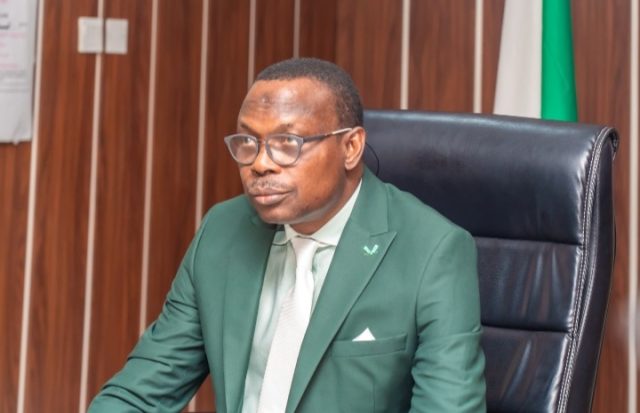The Federal Government has reaffirmed its commitment to ensuring equitable, affordable, and quality healthcare for all Nigerians as part of its drive to achieve Universal Health Coverage (UHC) by 2030.
Speaking at the African Health Business (AHB) Symposium held in Abuja, the Minister of State for Health and Social Welfare, Dr Iziaq Salako, highlighted the urgent need for innovative and sustainable approaches to address growing global health threats, including those posed by climate change, geopolitical tensions, and economic constraints.
Salako explained that UHC is aimed at guaranteeing people access to comprehensive, quality health services whenever and wherever needed, without financial hardship.
However, he noted that while most African nations, including Nigeria, have adopted UHC as a key national health objective, the actual translation of these policy commitments into adequate funding, equitable services, and financial protection mechanisms has been painfully slow.
“In the past two decades, Africa’s average service coverage index rose from 23 in 2000 to 44 in 2021, just a one-point increase per year. To meet the UHC target by 2030, we must increase our pace nearly tenfold,” Salako stressed.
He called for bold national actions, including increased investment in health systems, stronger international partnerships, and the mobilisation of political will at the highest levels of governance. According to him, achieving UHC requires that governments treat healthcare as a social contract, a core promise between leaders and citizens.
Salako emphasised the importance of building trust in health systems and ensuring no one is left behind, especially in vulnerable and hard-to-reach populations.
He advocated for creative thinking in crafting policy, strengthening regulation, and designing legal frameworks that truly meet the needs of the people.
“If Africa must realise the 2030 UHC Agenda, we must enact strong policies and cultivate a legal and regulatory environment that is both enabling and responsive. This demands innovation and political courage,” he said.
The minister highlighted key Nigerian initiatives already underway to accelerate UHC. Notably, the National Health Insurance Authority (NHIA) Act of 2022, which mandates health insurance for all citizens.
And legal residents, is a major policy shift aimed at expanding coverage.
Additionally, the National Health Act of 2014, which lays the foundation for equitable health service delivery across the country, is now being implemented with greater diligence to ensure that the legal framework translates into real-life improvements in healthcare access.
Salako stressed that sustaining political commitment, ensuring adequate funding, and engaging communities will be central to achieving a health system that is inclusive, trusted, and fit for purpose in a changing world.
He noted that Nigeria’s slow progress towards UHC has picked up in the last two years with the establishment of insurance agencies in all the 36 states of the federation and the FCT coupled with over 15 per cent growth in the numbers of Nigerians covered by health insurance and more robust and transparent implementation of the Basic Healthcare Provisions Fund (BHPF).
Salako observed that the government has embarked on an ambitious PHCs revitalisation agenda targeting the upgrade of 17,000 PHCs to level 2 by 2027, adding that the focus is to ensure full national coverage of health insurance by 2030 and adequacy of functional PHCs to enable citizens receive quality health care without facing any financial hardship, thereby preventing them from falling into poverty due to medical expenses.
The minister said that the government is implementing the Presidential Initiative for unlocking the healthcare value to boost local manufacturing and availability of essential medicines and other health products in health facilities across the country.
Also speaking, the Managing Director of MSD for South Africa and sub-Saharan Africa region, Zweli Bashman, said the company is committed to supporting African countries in their efforts to eliminate cervical cancer.
Mkhize noted that despite progress made since the launch of the World Health Organisation’s (WHO) Global Strategy for Cervical Cancer Elimination five years ago, the region has fallen behind in achieving its goals.
“In 2022, Africa accounted for 23 per cent of global cervical cancer mortality, with 19 of the 20 countries with the highest burden located in sub-Saharan Africa,” he said.
He observed that Nigeria has the highest cases and deaths from cervical cancer in Africa, with an estimated 12,075 new cases and 7,968 deaths yearly. “12,000 cases a year are not just statistics; they represent lives lost, families impacted, and communities devastated,” he emphasised.
While commending the Nigerian government for introducing the HPV vaccination programme and establishing the National Taskforce for Cervical Cancer Elimination (NTF-CCE), Mkhize called for increased efforts to accelerate the elimination process.







